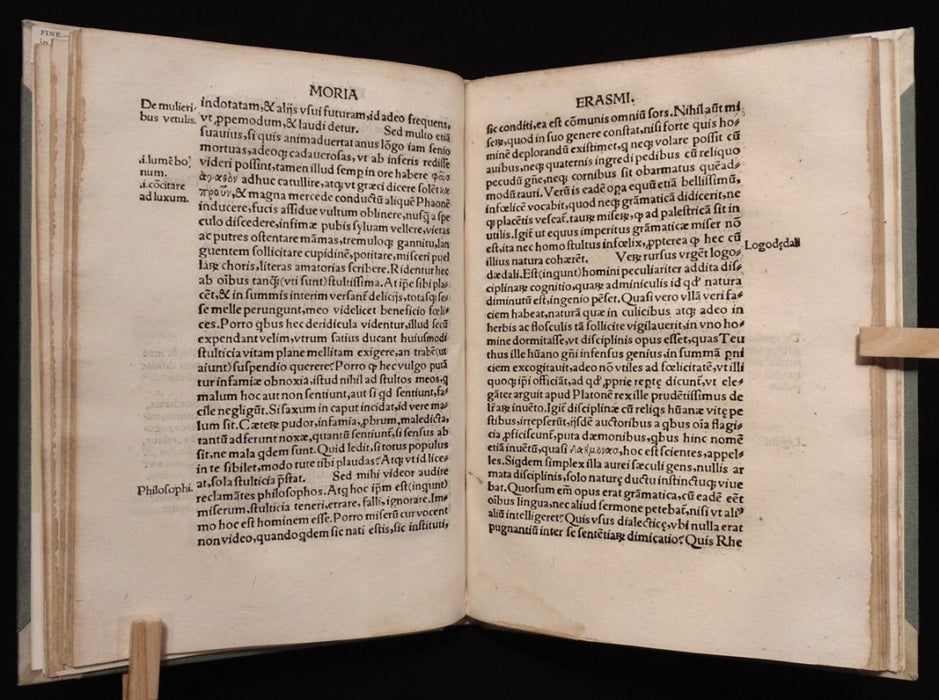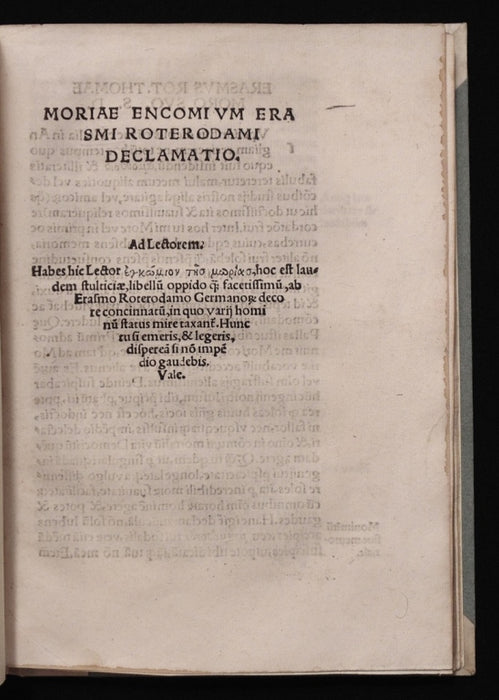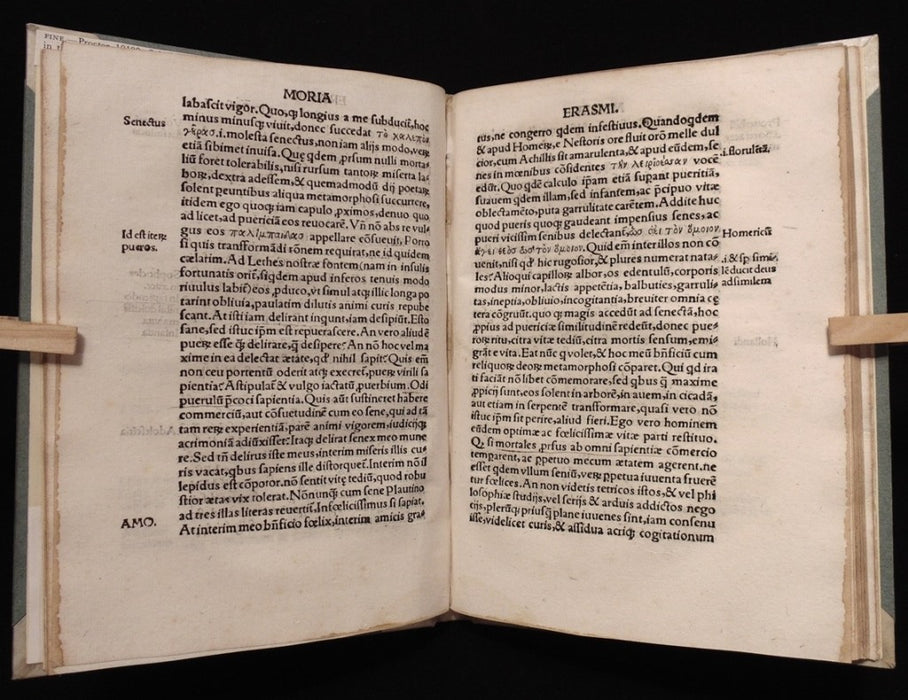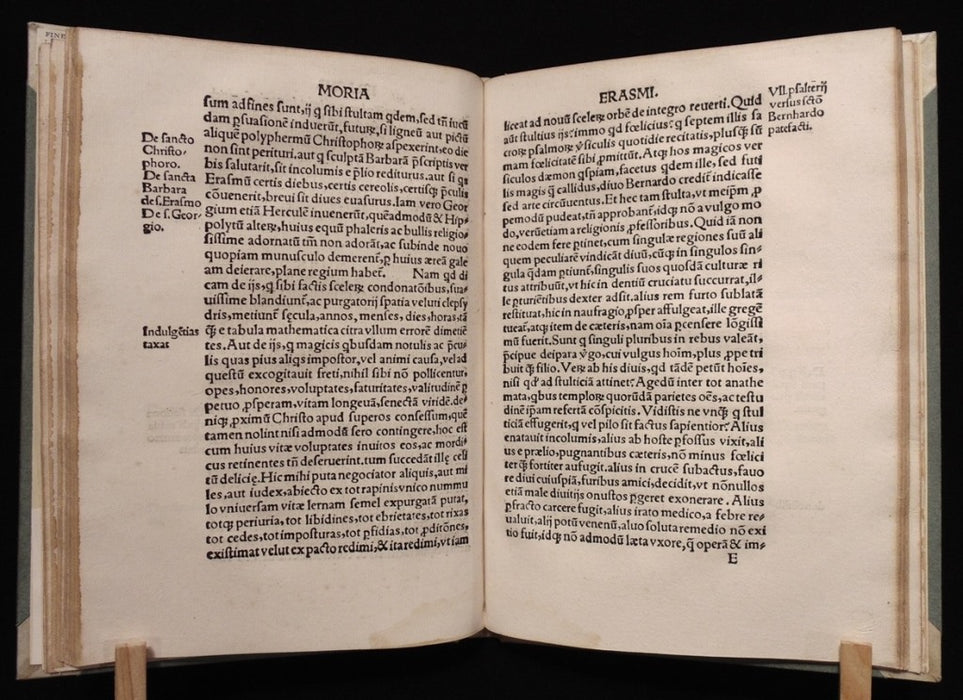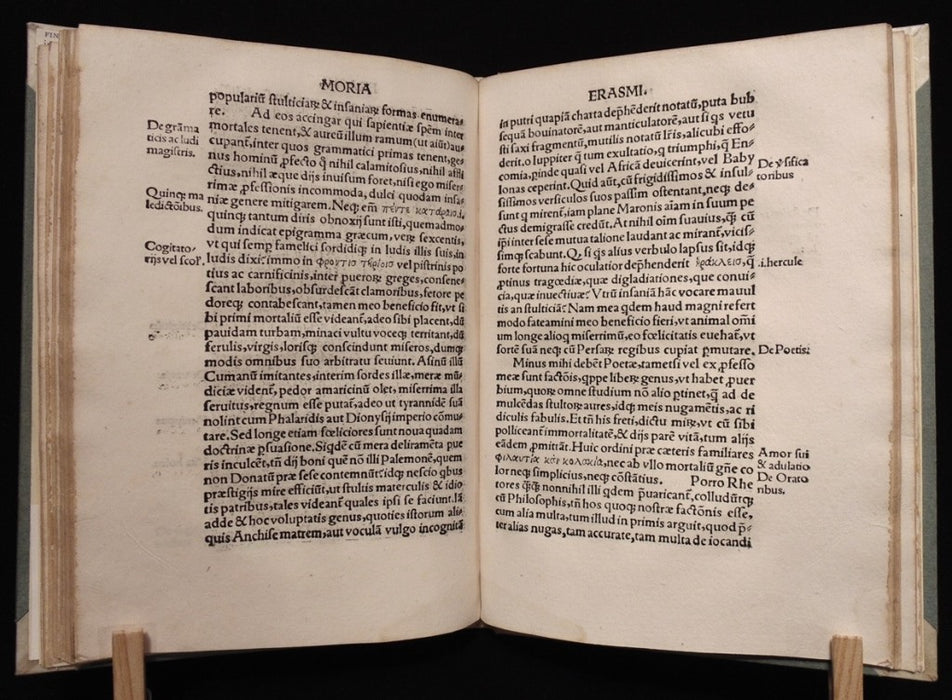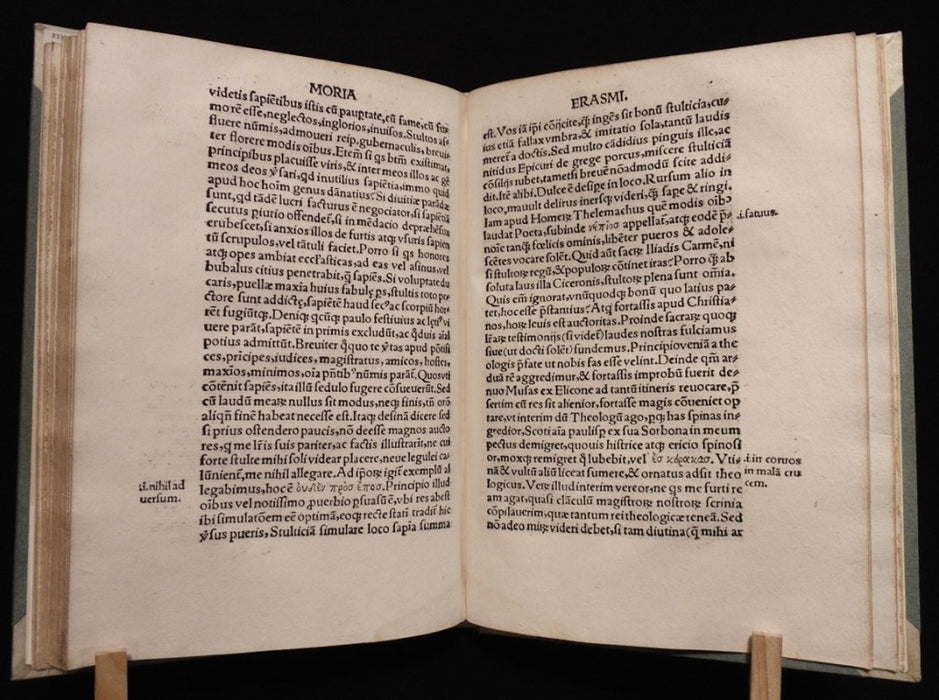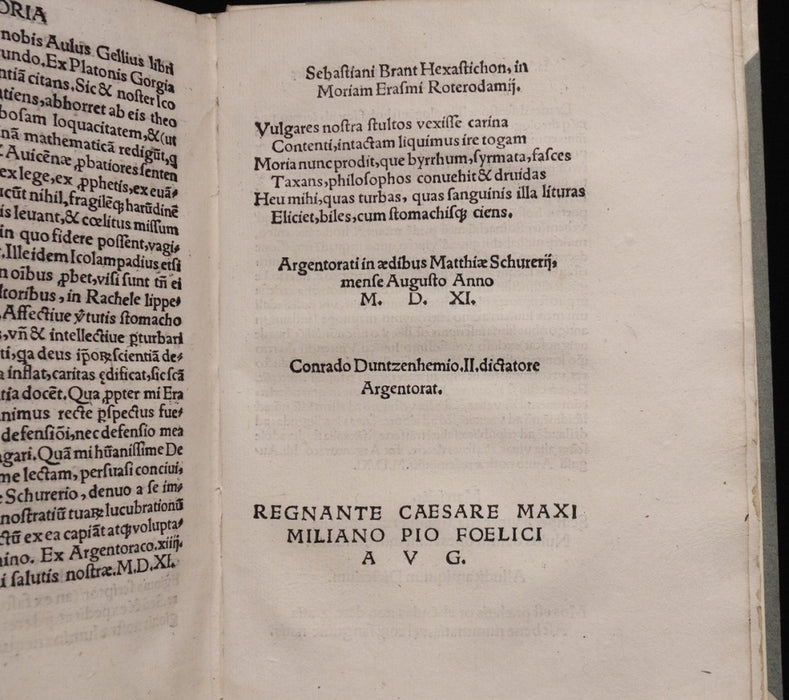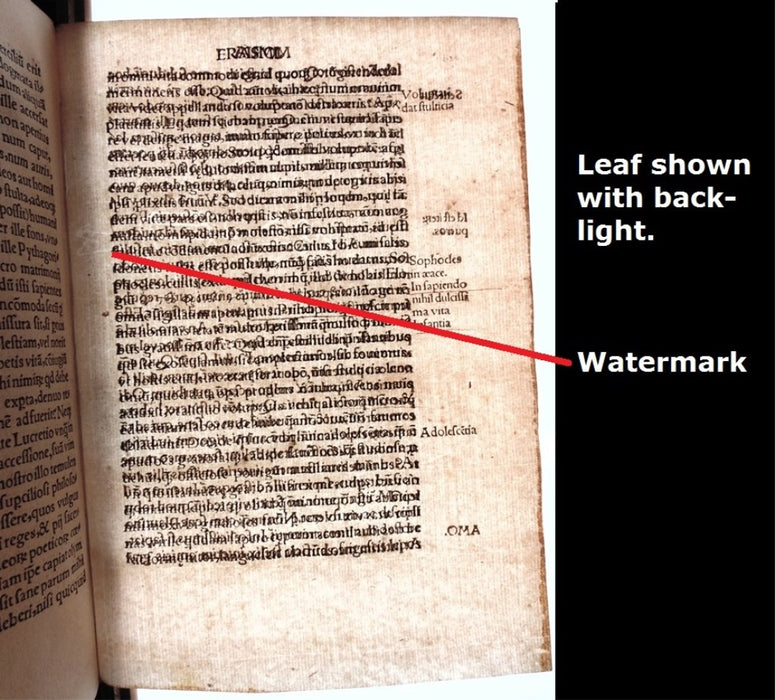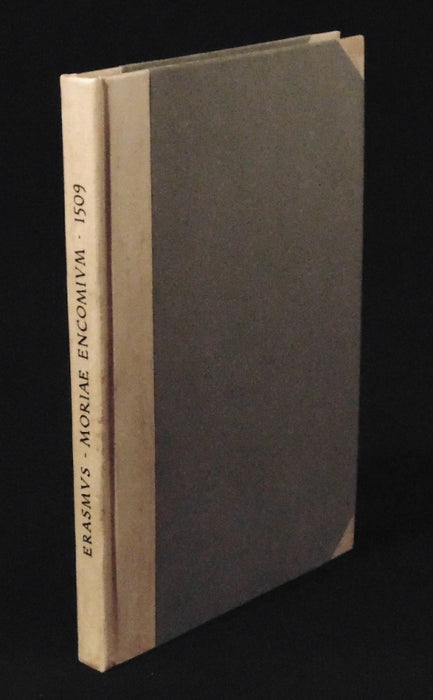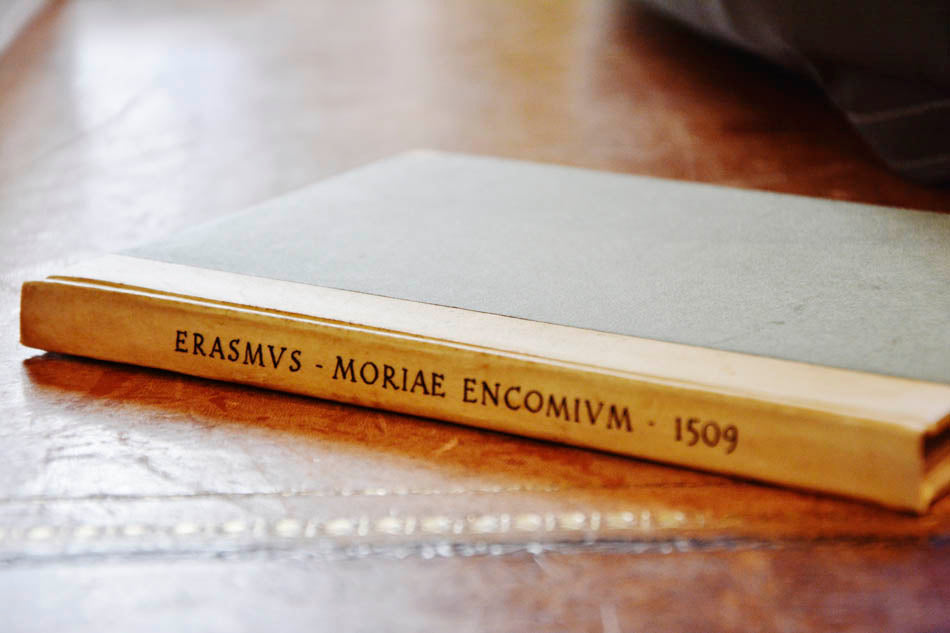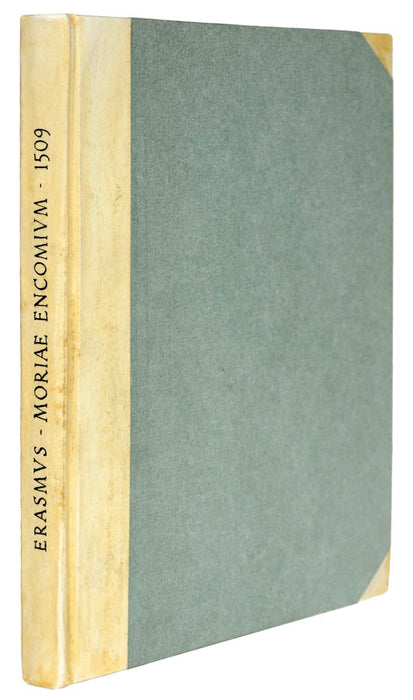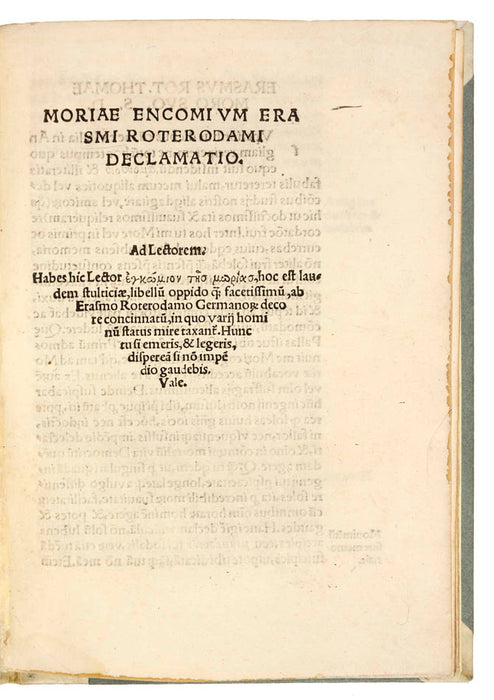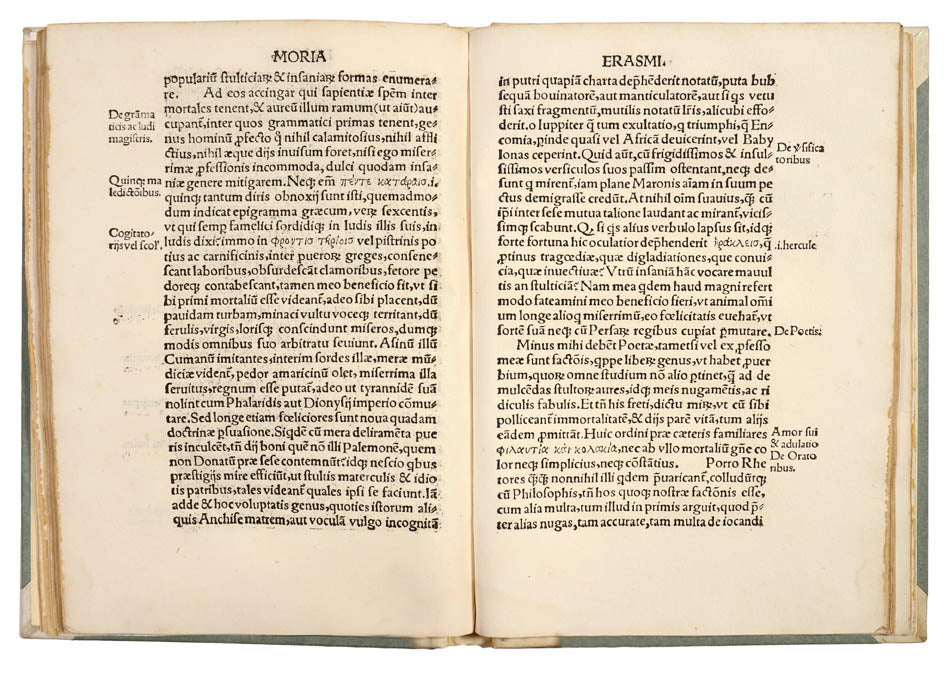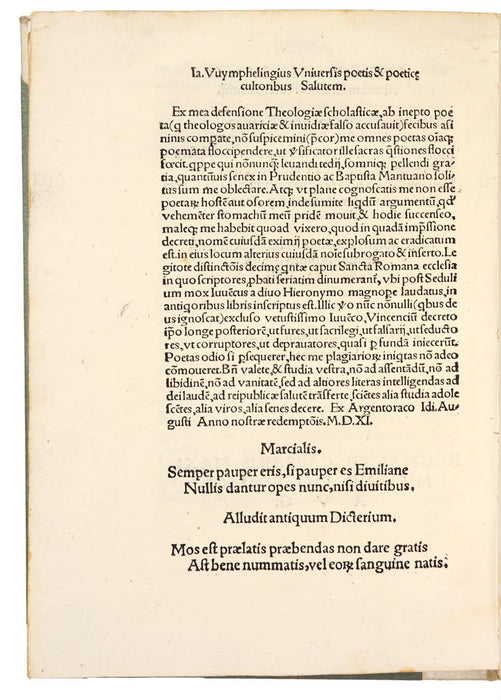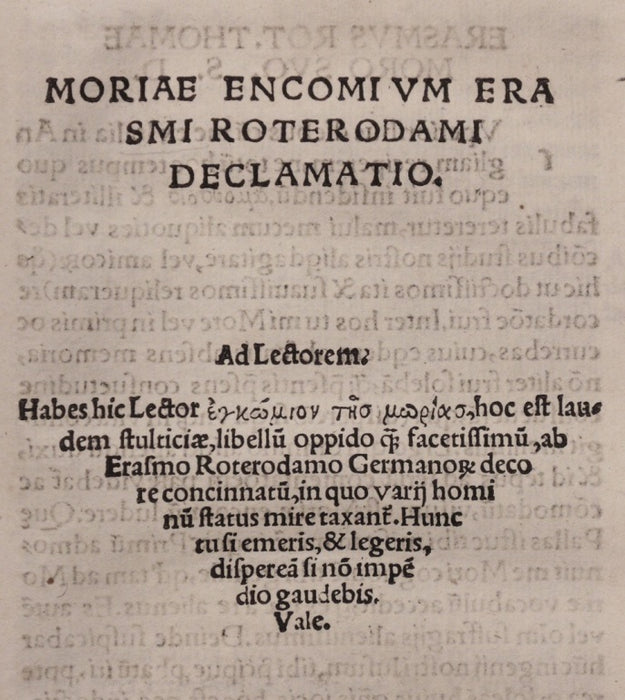
Moriae Encomium.
Erasmi Roterodami declamatio. [In Praise of Folly].
Argentorati (Strassburg), in aeidibus Matthiae Schurerii, August 1511.
Printed two months after the undated Paris edition by Gilles de Gourmont, of which only a handful of copies survive, all of them in institutional libraries. The present edition, almost as rare, is not merely a reprint of the Paris edition, but contains additional material including an address and laudatory letter to Erasmus by his fellow humanist Jakob Wimpfeling. All early editions are exceedingly scarce, with only three appearing at auction in the last 100 years that we could trace. The first English translation was not published until 1549, although there had been Czech, French and German editions prior to this.
An excellent example of a classic work of paradoxical satire, in which folly is personified and holds up a mirror to mankind. An extremely significant work both in its own right and for its influence on the Protestant Reformation in general. Sir Thomas More's own magnum opus Utopia was at least in part written as a response to Moriae Encomium.
'The Praise of Folly was written when Erasmus was staying in the house of Thomas More in the winter of 1509–10. Its title is a delicate and complimentary play on the name of his host: its subject matter is a brilliant, biting satire on the folly to be found in all walks of life. The book stemmed from the decision which Erasmus had taken when he left Rome to come to England, that no form of preferment could be obtained at the sacrifice of his freedom to read, think and write what he liked. The work was first secretly printed in Paris, and, as in other cases, its immediate success safeguarded him from the consequences of his audacity. Whenever tyranny or absolute power threatened, The Praise of Folly was re-read and reprinted. It is a sign of what was in the air that Milton found it in every hand at Cambridge in 1628. His inherent scepticism has led people to call Erasmus the father of eighteenth-century rationalism, but his rationalist attitude is that of perfect common sense, to which tyranny and fanaticism were alike abhorrent' (PMM 43).
Despite the risky nature of the work and its explicit and implicit attacks on established religion and authority figures of the time, its rapid popularity ensured that the author and the work were left unmolested by church and state, at least until Erasmus' death in 1536, after which his previously untainted reputation was diminished. By 1559, all of his works had been proscribed under the insidious Index Auctorum et Librorum Prohibitorum.
Second edition, first dated edition; small 4to (leaves measuring 19.4 x 13.8 cm); occasional minor coeval underlining and marginalia to earlier part of text, very light faded stain to lower margin at gutter throughout (not affecting text), bibliographical clippings tipped onto front endpapers; bound in antique style calf; [96]pp; A8, B4, C8, D4, E8, F4, G-H6, with the final blank leaf (H6) present ff.
Bezzel 1298; cf.PMM 43; Vander Haeghen 122.
Provenance
Delivery
We offer secure and express delivery on all local and international orders of rare books, maps and prints placed through this website.






